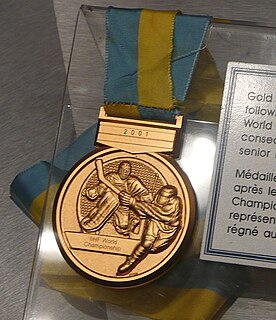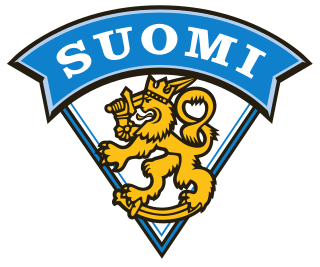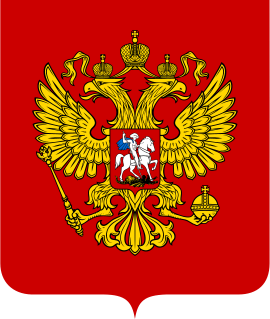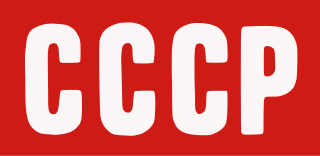
The Ice Hockey World Championships are an annual international men's ice hockey tournament organized by the International Ice Hockey Federation (IIHF). First officially held at the 1920 Summer Olympics, it is the sport's highest profile annual international tournament. The IIHF was created in 1908 while the European Championships, the precursor to the World Championships, were first held in 1910. The tournament held at the 1920 Summer Olympics is recognized as the first Ice Hockey World Championship. From 1920 to 1968, the Olympic hockey tournament was also considered the World Championship for that year.

The Sweden men's national ice hockey team is governed by the Swedish Ice Hockey Association. It is one of the most successful national ice hockey teams in the world and a member of the so-called "Big Six", the unofficial group of the six strongest men's ice hockey nations, along with Canada, the Czech Republic, Finland, Russia and the United States.

The United States men's national ice hockey team is based in Colorado Springs, Colorado, with its U18 and U17 development program in Plymouth, Michigan. The team is controlled by USA Hockey, the governing body for organized ice hockey in the United States. The U.S. team is currently ranked 4th in the IIHF World Rankings.

The Russian men's national ice hockey team is the national men's ice hockey team of Russia, overseen by the Ice Hockey Federation of Russia. As of 2021, they were rated third in the IIHF World Ranking. The team has competed internationally from 1992 until a 2022 ban, and is recognized by the IIHF as the successor to the Soviet Union team and CIS team. Russia has been one of the most successful national ice hockey teams in the world and a member of the so-called "Big Six," the unofficial group of the six strongest men's ice hockey nations, along with Canada, the Czech Republic, Finland, Sweden, and the United States. The European nations of the Big Six participate in the Euro Hockey Tour, which Russia won nine times since 2005. Since September 2021, the head coach is Alexei Zhamnov, who took over from Valeri Bragin.

The Finnish men's national ice hockey team, nickname Leijonat / Lejonen, as it is called in Finland, is governed by the Finnish Ice Hockey Association. Finland is one of the most successful national ice hockey teams in the world and a member of the so-called "Big Six", the unofficial group of the six strongest men's ice hockey nations, along with Canada, the United States, the Czech Republic, Russia, and Sweden.
The IIHF World Junior Championship (WJC), or simply the "World Juniors" in ice hockey circles, is an annual event organized by the International Ice Hockey Federation (IIHF) for national under-20 ice hockey teams from around the world. It is traditionally held in late December, ending in early January. The tournament usually attracts the top hockey players in this age category.

The 1987 World Junior Ice Hockey Championships was the 11th edition of the Ice Hockey World Junior Championship and was held in Piešťany, Trenčín, Nitra, and Topoľčany, Czechoslovakia. Finland captured its first World Junior gold medal, Czechoslovakia took silver, and Sweden the bronze. The tournament is most remembered, however, for how the medals were allocated ; see the next section for more details.
The IIHF Women's World U18 Championship (WW18), officially the IIHF Ice Hockey U18 Women's World Championship, is an annual ice hockey tournament for national women's under-18 (U18) ice hockey teams, administrated by the International Ice Hockey Federation (IIHF). It is the junior edition of the IIHF Women's World Championship and participation is limited to female ice hockey players under 18 years of age.

The Canadian men's national under-20 ice hockey team is the ice hockey team representing Canada internationally in under-20 competition. Their primary participation in this age group comes at the International Ice Hockey Federation's World Junior Championship, held annually every December and January. The team also participates in various exhibition matches and occasional exhibition series, such as the 2007 Super Series against their Russian counterparts, an eight-game exhibition series commemorating the 35th anniversary of the 1972 Summit Series.

The Punch-up in Piestany was a bench-clearing brawl between Canada and the Soviet Union during the final game of the 1987 World Junior Ice Hockey Championships in Piešťany, Czechoslovakia on January 4, 1987. The incident resulted in the ejection of both nations, and while the Soviets had already been eliminated from medal contention, the disqualification cost Canada a medal – potentially the gold. The brawl is famous for officials having turned off the arena lights in a desperate attempt to end the 20-minute melee. Much of the blame was placed on Norwegian referee Hans Rønning, who had been selected for the game based on his perceived neutrality rather than experience.

The 1988 World Junior Ice Hockey Championships was the 12th edition of the Ice Hockey World Junior Championship and was held in Moscow, Soviet Union. Canada and the Soviet Union won the gold and silver medals respectively as the two nations redeemed themselves following their mutual disqualification in the 1987 tournament as a result of the Punch-up in Piestany. Finland won the bronze medal.
The 1982 World Junior Ice Hockey Championships was the sixth edition Ice Hockey World Junior Championship and was held from December 22, 1981, until January 2, 1982. The tournament was hosted by the United States in various cities across the state of Minnesota with some games also played in the Canadian provinces of Manitoba and Ontario.

The 1986 World Junior Ice Hockey Championships was the tenth edition of the Ice Hockey World Junior Championship and was held from December 26, 1985, until January 4, 1986. It was held mainly in Hamilton, Ontario, Canada. The Soviet Union won the gold medal, its seventh championship, Canada won silver and the United States won bronze. The bronze medal was the first for the Americans in tournament history.
The 1992 World Junior Ice Hockey Championships was the 16th edition of the Ice Hockey World Junior Championship and was held from December 26, 1991, until January 4, 1992. It was held in Füssen and Kaufbeuren, Germany. The Commonwealth of Independent States won gold, while Sweden won silver, and the United States took home the bronze medal.

The Russian men's national under 20 ice hockey team is the national under-20 ice hockey team in Russia. The team represents Russia at the International Ice Hockey Federation's World Junior Hockey Championship, held annually every December and January. After the 2022 Russian invasion of Ukraine, the International Ice Hockey Federation suspended Russia from all levels of competition.

Because of their proximity and similar sporting cultures, Canada and United States are frequent rivals in a wide variety of international sports.

The Soviet Union men's national under-18 ice hockey team was the men's national under-18 ice hockey team in the Soviet Union. It was succeeded by the Russia men's national under-18 ice hockey team in 1992.

Bo Tovland was a Swedish ice hockey coach and executive. He was the general manager of the Sweden men's national ice hockey team at seven Ice Hockey World Championships, three Winter Olympics and three Canada Cup tournaments. Under his leadership, Sweden won gold in ice hockey at the 1994 Winter Olympics, and three gold medals at the Ice Hockey World Championships. He previously coached the national junior team to a gold medal at the 1981 World Junior Ice Hockey Championships, and won multiple medals coaching the under-18 men's team. He began working for the Swedish Ice Hockey Association in 1961, sat on its board of directors from 1981 to 2002, and was its vice-chairman for eight years. He was also a member of the Swedish Olympic Committee from 1985 to 2005, and was a member of International Ice Hockey Federation committees from 1998 to 2008. Tovland received multiple honors for his career in hockey, which included H. M. The King's Medal in 1996, the Paul Loicq Award for contributions to international ice hockey in 2006, and induction into the Swedish Hockey Hall of Fame in 2012.














